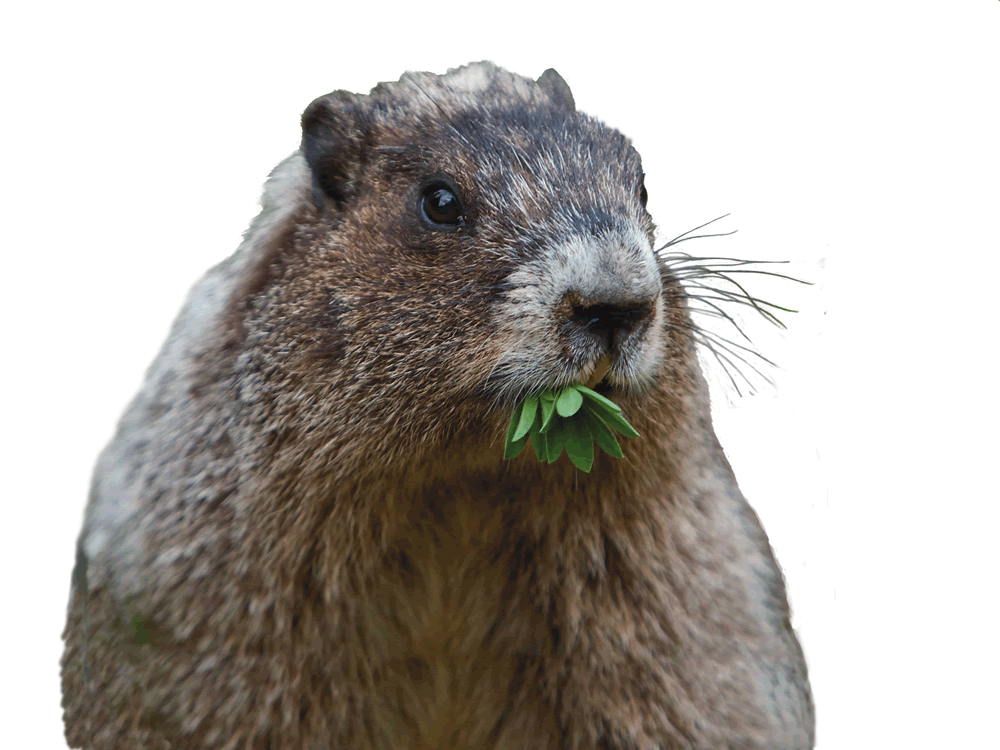
Can That Cute Groundhog Really Cause Damage?

Why Gardener’s do not dig Groundhogs
- A groundhog’s, or woodchuck’s burrow are holes with large piles of dirt at the entrances and are a nuisance and can be dangerous.
- A groundhog’s tunnels are very large and have many chambers which are invasive to your lawn and garden.
- An average groundhog excavates 700 pounds of dirt for one den. They may have four or five dens in their territory!
- Common locations for permanent dens are at fence lines and brush bordering fields. So basically, they love to set up around your garden’s fence or a farm’s field.
- A groundhog will help itself to anything and everything you have planted. They are vegetarians and are partial to leaves, flowers and grasses. They especially like certain garden crops like carrots, beans and peas. They will even climb trees to eat apples and pears.
- When it comes to setting up burrows, Groundhogs are lazy and will dig them near your garden and use it as their own personal salad bar. They will also dig burrows near recently dug fence posts and planted trees so they can be constructed quickly and with little effort. This weakens costly new fences and the roots of expensive new trees.
- Groundhogs have been known to decimate an entire garden by taking a single bite out of a dozen different zucchini or peppers. They do the same to pumpkins ruining farmers’ seasonal chance of selling them at Halloween.
Although he is cute, we now know that YES, the groundhog can cause vast damage on your property. So the next step is to send them on their way.
- The first suggestion to deter groundhogs (and other pests) in your yard is to build a fence. A chicken-wire fence will work nicely. It needs to be at least 3.5 feet high and buried 1 foot into the ground with the fence angled away from the garden. Effective, but a big project and may not be the best “look” for your property.
- Groundhogs are leery of strange objects and can be scared away with things that rattle and clang. Tin pie plates can be tied to trees or try hanging wind chimes for a more decorative touch.
- There are effective repellents available at garden centers. Bobbex-R is specially formulated to repel small animals. These repellents keep groundhogs at bay with an unpleasant odor and taste.
- Spread Epsom salts on your plants. Groundhogs do not care for the taste and they have an added benefit of being good for plants. Epsom salts will wash off very easily in the rain so will need to be reapplied.
- Soaking rags in ammonia and placing around your garden will also repel the groundhog in the same manner as the Epsom salts. It will last longer, but need to be refreshed regularly.
Groundhogs are very persistent so however you decide to protect your garden, be vigilant all season!
